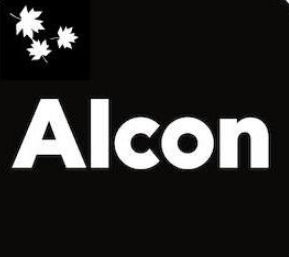预约演示
更新于:2025-05-07

Entod Pharmaceuticals Ltd.
更新于:2025-05-07
概览
关联
1
项与 Entod Pharmaceuticals Ltd. 相关的药物靶点 |
作用机制 mAChRs激动剂 |
非在研适应症 |
最高研发阶段批准上市 |
首次获批国家/地区 加拿大 |
首次获批日期1951-12-31 |
4
项与 Entod Pharmaceuticals Ltd. 相关的临床试验CTRI/2023/08/057127
A Multi-Center, Double-blind, Randomized, Placebo-controlled, Parallel-Group, Phase III Clinical Study to Evaluate the Efficacy and Safety of Pilocarpine Hydrochloride Ophthalmic Solution USP 1.25% w/v Versus Placebo Ophthalmic Solution for the Treatment of Presbyopia - Nil
开始日期2023-09-12 |
申办/合作机构 |
CTRI/2022/04/041667
A Phase III, Multicentre, Randomized, Double-blinded, Parallel group, Comparative, Clinical Study to Evaluate the Efficacy and Safety of Atropine Sulfate 0.05% ophthalmic solution compared to Atropine Sulfate 0.01% ophthalmic solution for Controlling Progression of Myopia in Children
开始日期2022-04-20 |
申办/合作机构 |
CTRI/2021/04/032545
A Phase IV, Multicentre, Open Label Clinical Study to Evaluate The Safety and Efficacy of Intracameral Phenocaine Plus Injection for Anaesthesia and Mydriasis in Cataract Surgery.
开始日期2021-04-05 |
申办/合作机构 |
100 项与 Entod Pharmaceuticals Ltd. 相关的临床结果
登录后查看更多信息
0 项与 Entod Pharmaceuticals Ltd. 相关的专利(医药)
登录后查看更多信息
5
项与 Entod Pharmaceuticals Ltd. 相关的新闻(医药)2025-02-18
·米内网
精彩内容
2月17日,恒瑞医药公告称,子公司成都盛迪HR19034滴眼液的药品上市许可申请获国家药监局受理。米内网数据显示,2023年中国三大终端六大市场眼科用药销售额超过200亿元。
2.2/2.4类新药硫酸阿托品滴眼液(HR19034滴眼液)申请上市的适应症为:用于延缓等效球镜度数为-0.50D至-4.00D(散光≤1.50D、屈光参差≤1.50D)的6至12岁儿童近视进展。
HR19034滴眼液是恒瑞医药采用B/F/S三合一灌装技术开发的一种单剂量滴眼液,其活性成份为硫酸阿托品,无需添加防腐剂。该药已获批上市的同类产品包括澳大利亚Aspen、印度Entod、日本参天制药和沈阳兴齐眼药的硫酸阿托品滴眼液。
米内网数据显示,2023年中国三大终端六大市场(统计范围详见本文末)眼科用药销售额超过200亿元,同比增长16.52%;2024年上半年其销售额超过100亿元,同比下滑2.97%,其中硫酸阿托品滴眼液销售额超过1500万元。
中国三大终端六大市场眼科用药销售情况(单位:万元)
来源:米内网格局数据库
近年来恒瑞医药坚持加大创新研发投入力度。2023年公司研发投入61.50亿元,2014-2023年累计研发投入接近350亿元;2024年前三季度研发费用45.49亿元,同比增长22.10%。在1类创新药研发成果持续兑现的同时,公司也兼顾2类改良型新药的研发。在眼科用药领域,恒瑞医药已有2款仿制药地夸磷索钠滴眼液、他氟前列素滴眼液获批上市;1类新药SHR8058滴眼液上市申请在审,有望于2025年内获批上市;2类改良型新药HR19034滴眼液已申报上市,冲刺国产第2家。
资料来源:米内网数据库、公司公告
注:米内网《中国三大终端六大市场药品竞争格局》,统计范围是:城市公立医院和县级公立医院、城市社区中心和乡镇卫生院、城市实体药店和网上药店,不含民营医院、私人诊所、村卫生室,不含县乡村药店;上述销售额以产品在终端的平均零售价计算。
本文为原创稿件,转载请注明来源和作者,否则将追究侵权责任。投稿及报料请发邮件到872470254@qq.com稿件要求详询米内微信首页菜单栏商务及内容合作可联系QQ:412539092
【分享、点赞、在看】点一点不失联哦
上市批准
2024-10-22
10月21日,兴齐眼药发布公告,公司研发的硫酸阿托品滴眼液,近日获得了“硫酸阿托品滴眼液延缓儿童近视进展的有效性和安全性的随机、双盲、安慰剂平行对照、多中心2年临床试验”临床总结报告。
试验结论:
本研究是一项随机、双盲、安慰剂平行对照、多中心临床试验,486例6-12岁儿童受试者经过了为期2年的用药观察,停药后1年的随访观察,评估硫酸阿托品滴眼液延缓儿童近视进展的有效性和安全性。研究结果显示,硫酸阿托品滴眼液组对比安慰剂组在主要疗效指标上有统计学意义的显著性差异,硫酸阿托品滴眼液组优于安慰剂组,安全性良好,患者使用依从性好。
目前,兴齐眼药的0.01%硫酸阿托品滴眼液已获国家药监局批准上市,批准适应症为本品用于延缓球镜度数为-1.00D至-4.00D(散光≤1.50D、屈光参差≤1.50D)的6至12岁儿童的近视进展。截止目前国内尚无其它近视相关适应症的同类产品上市,国外已有同类硫酸阿托品滴眼液产品上市,包括澳大利亚Aspen公司、印度Entod公司等的0.01%硫酸阿托品滴眼液。
临床3期上市批准临床2期
2024-09-12
The CDSCO has emphasised that the eye drops should not be sold without a valid prescription. Credit: Ahmet Misirligul/Shutterstock.
Due to safety concerns and unauthorised claims, the Central Drugs Standard Control Organisation (CDSCO) of India has suspended the manufacturing and marketing license of Entod Pharmaceuticals’ PresVu eye drops, which contain 1.25% Pilocarpine w/v.
The CDSCO’s suspension order noted that PresVu was not approved to make claims about reducing the need for reading glasses.
The product was only permitted for treating presbyopia in adults, and not for any other benefits such as enhancing near vision.
According to the CDSCO, Entod engaged in promotional activities that included “unauthorised claims” in the media and on social platforms.
These activities showcased that PresVu could be an advanced alternative for near vision improvement – a claim not sanctioned by the regulator.
See Also:
FDA grants breakthrough therapy designation to Neuraptive’s NTX-001
FDA grants breakthrough therapy status to Arrowhead’s plozasiran
The promotion of PresVu also led to concerns about its use as an over-the-counter drug, despite its approval only as a prescription medication.
The CDSCO emphasised that eye drops should not be sold without a valid prescription, either in physical stores or online.
The CDSCO had previously requested explanations from Entod Pharmaceuticals concerning these claims. The suspension order was a consequence of the company’s inadequate response to the regulator’s concerns.
Entod Pharmaceuticals CEO Nikkhil Masurkar stated: “We will challenge this suspension in the court of law to get justice.”
In a media release, Masurkar went on: “Our approval by DCGI was based on a valid controlled clinical trial in 234 patients which was successful in showing [the] efficacy and safety of these eye drops in patients [with] presbyopia, who used these drops without eyeglasses and could read additional lines on Snellen’s chart which is a yardstick of near vision improvement.”
“Such eye drops on the same active ingredient and same concentration have been approved by the US FDA and marketed in the USA for the last three years without any serious complications. The FDA did not take any action on the companies marketing the same in the USA.”

优先审批突破性疗法
100 项与 Entod Pharmaceuticals Ltd. 相关的药物交易
登录后查看更多信息
100 项与 Entod Pharmaceuticals Ltd. 相关的转化医学
登录后查看更多信息
组织架构
使用我们的机构树数据加速您的研究。
登录
或

管线布局
2026年02月08日管线快照
管线布局中药物为当前组织机构及其子机构作为药物机构进行统计,早期临床1期并入临床1期,临床1/2期并入临床2期,临床2/3期并入临床3期
其他
1
登录后查看更多信息
当前项目
| 药物(靶点) | 适应症 | 全球最高研发状态 |
|---|---|---|
盐酸毛果芸香碱 ( mAChRs ) | 老花眼 更多 | 撤市 |
登录后查看更多信息
药物交易
使用我们的药物交易数据加速您的研究。
登录
或

转化医学
使用我们的转化医学数据加速您的研究。
登录
或

营收
使用 Synapse 探索超过 36 万个组织的财务状况。
登录
或

科研基金(NIH)
访问超过 200 万项资助和基金信息,以提升您的研究之旅。
登录
或

投资
深入了解从初创企业到成熟企业的最新公司投资动态。
登录
或

融资
发掘融资趋势以验证和推进您的投资机会。
登录
或

生物医药百科问答
全新生物医药AI Agent 覆盖科研全链路,让突破性发现快人一步
立即开始免费试用!
智慧芽新药情报库是智慧芽专为生命科学人士构建的基于AI的创新药情报平台,助您全方位提升您的研发与决策效率。
立即开始数据试用!
智慧芽新药库数据也通过智慧芽数据服务平台,以API或者数据包形式对外开放,助您更加充分利用智慧芽新药情报信息。
生物序列数据库
生物药研发创新
免费使用
化学结构数据库
小分子化药研发创新
免费使用

